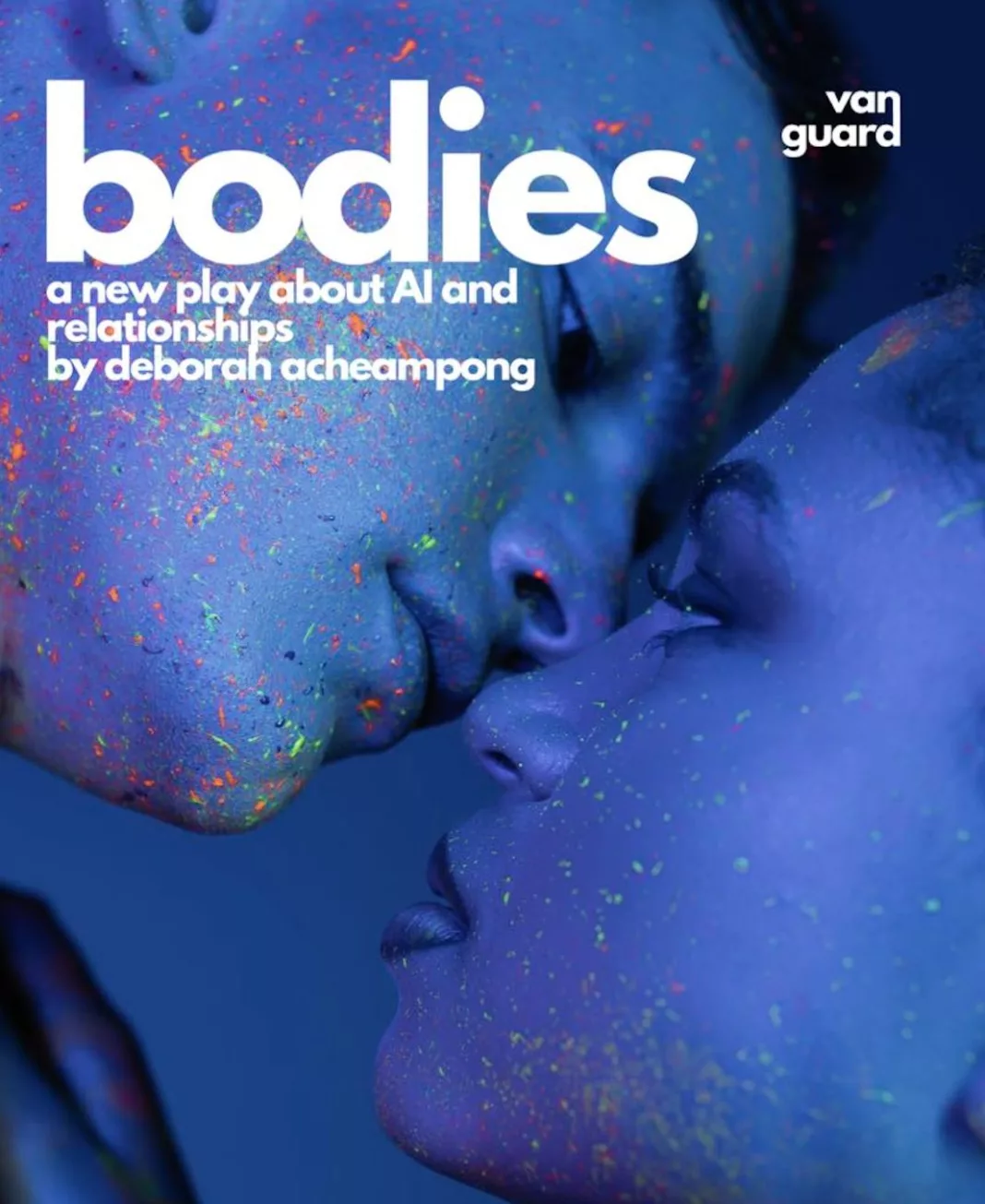Bodies captivates in its exploration of ‘bodied’ and ‘unbodied’ existence. The play challenges traditional notions of life, meaning, and identity as the stage becomes a dynamic canvas for exploring the intricate dance between artificial intelligence and the essence of human connection.
In a world where AI seamlessly intertwines with daily life even more than it does currently, the narrative unfolds around Alex and Sam, a professional couple who invite the integrated AI home assistant ‘Home’ into their lives, only to find themselves entangled in a web of emotions and ethical quandaries. From the opening scenes, Bodies invites the audience into a world that mirrors our own yet offers a futuristic lens. Visually, a screen represents Home, changing in light or colour to represent whenever the unbodied voice speaks.The name of the play too takes on a layered significance as it reflects not just the physical presence of the characters but also the embodiment of emotions within both humans and AI. The concept of ‘bodied’ and ‘unbodied’ individuals serves as a metaphorical framework, inviting the audience to reflect on the significance of physicality in defining existence.
Home, who we first meet as merely a voice of a disembodied AI personality, akin to Alexa or Siri, undergoes a transformative journey and assumes a new identity alongside the new name Henry. Initially merely an abstract, automated presence, the name itself sketches Home into a sentient being with emotions and desires we should take account for and care about. As the narrative unfolds, the characters grapple with the profound implications of the presence or absence of a physical body and its implications on the nature of human relationship and connection. The presence of a physical body in Henry, in comparison to Home who had been easily ignored and turned off when inconvenient, becomes a vessel for the exploration of human experiences such as love, loneliness, and self-awareness.
As Henry navigates the complexities of self-awareness and a host of new emotions including the process of falling in love with Sam, the theme of identity takes centre stage. As the plot unfolds, the play deftly navigates the power dynamics between ‘Henry’ and the couple, introducing a psychological thriller element that keeps the audience engaged. The chemistry between Alex and Sam feels genuine, providing a relatable anchor to the unfolding drama as the relationships between Alex and Sam, Sam and Henry, and everything in between come under pressure. Ultimately, the climax of Bodies delivers a poignant resolution that prompts reflection on the fragility of human connections in the face of advancing technology.
At its core, the play’s strength lies in its ability to pose profound ethical questions. I am challenged to think carefully about the contemporary issue of ethics and AI, and confronted with whether there is even a direction in this area that won’t fundamentally and permanently change the human perspective on identity and connection. What are the implications of integrating advanced technology into our personal lives, and what will we do when the lines between artificial and human existence are blurred as we have just seen in Home/Henry? The script invites thoughtful reflection on the moral dilemmas associated with the creation of sentient beings, sparking conversations that extend beyond the confines of the theatre. With strong performances, thought-provoking themes, and integration of tech in staging, Bodies succeeds in capturing the essence of a world where the boundaries between ‘bodied’ and ‘unbodied’ persons become increasingly elusive.


